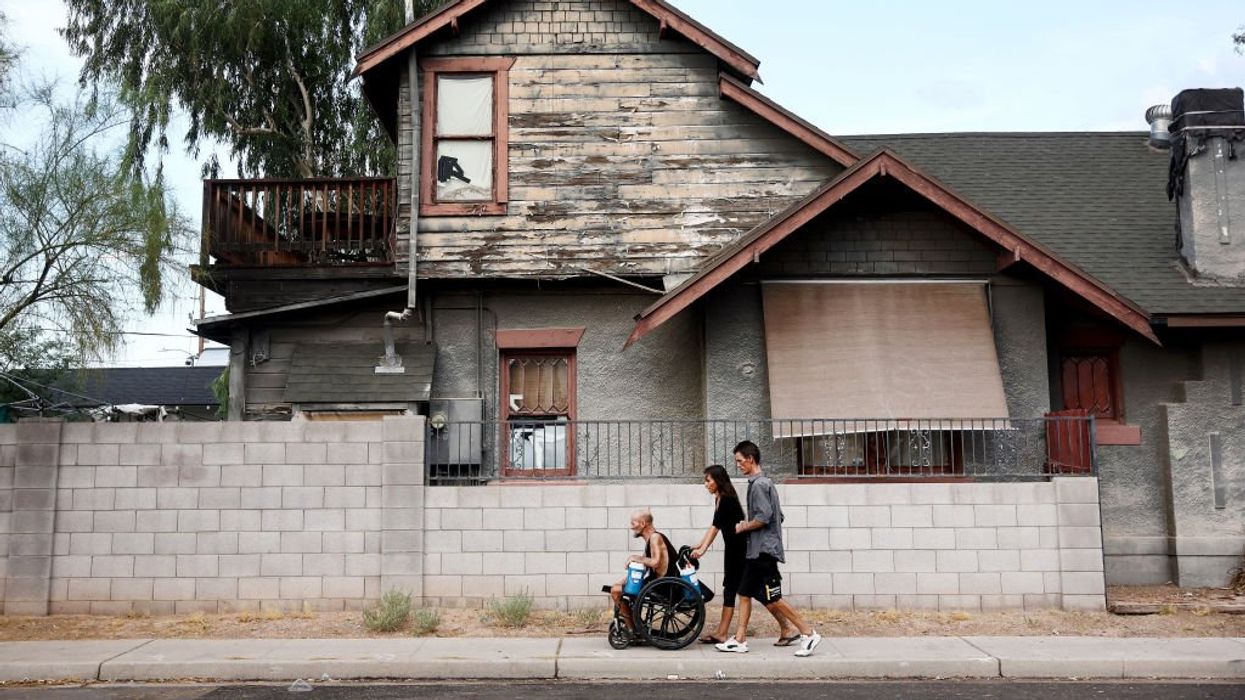
Photo by Mario Tama/Getty Images

The Biden administration's Medicaid guidelines have expanded to allow states to use part of their budget to provide rental assistance or money for utilities to recipients.
The new guidelines from the Centers for Medicare and Medicaid Services advise that states can devote no more than 3% of their Medicaid spending to experimental subsidies, so long as they add in their own funding and evaluate the outcomes.
The new CMS guidelines under the Biden White House have stated that any service a state chooses to include must simply be based on evidence that proves it makes a difference, the Washington Post noted.
Much of the guidance comes out of the Biden administration's U.S. Playbook to Address Social Determinants of Health, which lists housing security, food security, education access, and "healthy environment" as the top causes for inequal outcomes.
So far, Arizona and Oregon are the inaugural states to start using the new guidelines and will reportedly target homeless people, those who are at risk of losing their housing, and the mentally ill.
The Daily Mail reported that rental assistance programs will come in the form of one-time payments for security deposits or money to pay for rent and utilities for more than six months.
Arizona will allegedly spend more than $550 million of its Medicaid funding on the experimental program.
Arizona's program will also reportedly include housing vouchers, which can cover between 70% and 100% of an eligible person's rent, depending on income.
Oregon will spend a reported $1 billion on its housing assistance program. Those with a behavioral health crisis, with a long-term health condition, or who are pregnant will reportedly qualify.
As well, those who are at risk of becoming homeless may be eligible.
"Clearly, nobody is saying that Medicaid is here to solve all housing and nutritional needs in the country, nor are we here to take over other agencies," said Medicaid Director Daniel Tsai. "Does Medicaid have a role in social needs? The answer is yes. … It’s exciting. It’s groundbreaking. It is not an open check."
The U.S. Playbook, released in November 2023, stated that it has a "commitment to advancing health equity, expanding health coverage, and improving health outcomes."
The document claimed that health disparities have arisen over time due to "structural inequities" that often disproportionately impact "historically underserved individuals." The government's lengthy list of underserved people included blacks, Latinos, native Americans, "Asian Americans and Pacific Islanders and other persons of color," transgenders, and "queer (LGBTQ+) persons."
This was in addition to people with disabilities, seniors, women, the homeless, and those who live in rural areas. However, the document also added the category of those who "live in communities with environmental justice concerns."
The federal government also promoted the U.S. Interagency Council on Homelessness, which declared housing to be a right, not a privilege, and is "guided by its commitment to racial equity."
Like Blaze News? Bypass the censors, sign up for our newsletters, and get stories like this direct to your inbox. Sign up here!
Andrew Chapados